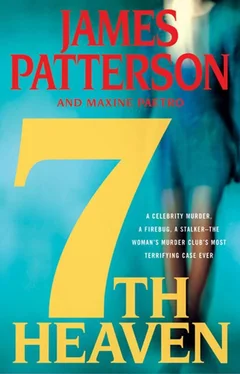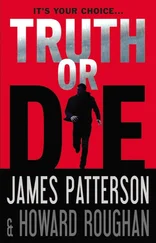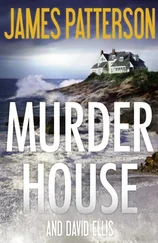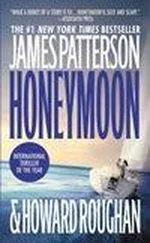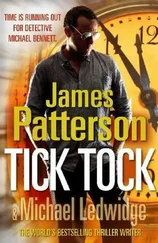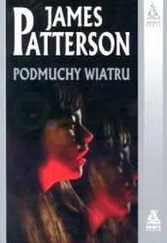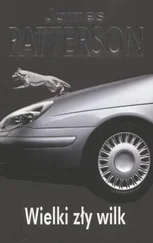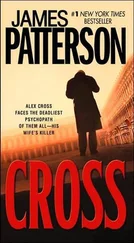It was all that I had.
I got whistles, of course, one beefy old-timer shouting out, “Nice rack, Sarge.”
“Shut up, McCracken,” Rich shouted back, making me blush, extending the moment as my fellow cops laughed and made raunchy comments to each other. After Jacobi kicked a desk so that a hollow boom silenced the room, I filled everyone in on the Meacham and Malone homicides.
Assignments were divvied up, I got into the car with Conklin, and we drove to one of the dark and grubby alleys in the Mission. We were doing it again, more down-and-dirty detective work, hoping for clues in the absence of a single hard lead.
Our first stop was a pawnshop on Polk called Gold ’n’ Things, a shop piled high with outdated electronics and musical instruments, and a half-dozen glass cases filled with tacky bling. The proprietor was Rudy Vitale, an obese man with thick glasses and thin hair, a marginal fence who used the pawnshop as his office while making his real deals in cars and bars, anywhere but here.
I let Conklin take the lead because my insides were still reeling from the sharp turn my life had taken only twelve hours before.
My mind was stuck in a groove of what the fire had cost me in emotional touchstones to my past: my Willie Mays jacket, my Indian pottery, and everything that had belonged to my mother, especially her letters telling me how much she loved me, a sentiment she’d only been able to write when she was dying but was never able to actually say.
As Conklin showed insurance photos to Vitale, I glanced at the display cases, still in a daze, not expecting anything, when suddenly, as if someone yelled Hey in my ear, I saw Patty Malone’s sapphire necklace on a velveteen tray, right there .
“Rich,” I said sharply. “Take a look at this.”
Conklin looked, then told Vitale to open the case. Baubles clanked as Vitale pawed through them, handed the necklace up to Conklin with his catcher’s mitt of a hand.
“You’re saying these are real sapphires?” Vitale said innocently.
Conklin’s face blanched around the eyes as he placed the necklace down on the photograph. It was clearly a match.
“Where’d you get this?” he asked Vitale.
“Some kid brought it in a week ago.”
“Let’s see the paperwork.”
“Hold on,” Vitale said, waddling back to his cage.
He moved a pile of auction catalogs and books on antique jewelry from his desk chair, then tapped the keys on his laptop.
“Got it. I paid the kid a hundred bucks. Here you go. Whoops. I just noticed his name.”
I read the receipt over Conklin’s shoulder, the name Clark Kent, an address somewhere in the middle of the bay, and the description of a “blue topaz necklace.”
“Was he wearing a suit and eyeglasses?” Conklin yelled. “Or maybe he’d changed into tights and a cape?”
“I’ll need the tape from that,” I said, pointing to the video camera anchored in the corner of the ceiling like a red-eyed spider.
Vitale said, “That’s got a twenty-four-hour loop. He’s not on it anymore. Anyway, I dimly remember the kid, and I don’t think he was the tights-and-cape type. More of a preppy look. I think maybe I sold him some comic books one time before.”
“Can you do better than ‘preppy look’?”
“Dark hair, I think. A little on the stocky side.”
“We’ll need you to come in and look at our mug books,” I said. “Talk to a sketch artist.”
“I’m no good at faces,” said Vitale. “It’s like a disorder I have. Some kind of dyslexia. I don’t think I’d recognize you if I saw you tomorrow.”
“Bull,” Conklin snapped. “This is a homicide investigation, Vitale. Understand? If that kid comes in again, call us. Preferably while he’s still here. And make a copy of his driver’s license.”
“Okay, chief,” Vitale said. “Will do.”
“It’s something,” Conklin said to me as he started up the car. “Kelly will be glad to have something from her mom.”
“Yeah, she will,” I said.
My mind flew to my own mom’s death. I turned my head so that Conklin couldn’t see the tears that came into my eyes.
CHUCK HANNI STOOD with me and Joe in the dank basement of the building where I used to live, showing us the fine points of archaic knob-and-tube wiring as water dripped on our heads. The door to the fuse box was open, and Hanni held his Mag-Lite on a fuse he wanted me to see.
“See how this penny is annealed to the back of the fuse?”
I could just make out the dull copper blob.
“The college girls on the second floor – you know them?” Hanni asked.
“Just to wave hi.”
“Okay, well, apparently they’ve been blowing fuses every other day with their hair dryers and air conditioner and irons and whatnot. And your super got tired of running over here to change the fuse, so he put this penny in here.”
“Which does what?”
Chuck explained everything that happened, how the copper penny overrode the fuse so that the circuit didn’t trip. Instead the electricity went through the penny and melted down the wiring at its weakest point. In this case, the ceiling lights on the second floor and the electric sockets in my apartment.
I visualized flames shooting out of the socket, but I still didn’t get it – so Chuck took his time explaining to me and to Joe how my building, like a lot of old buildings, had “balloon construction,” that is, the framing timbers ran from roof to ceiling without any fire stops in between.
“The fire just races up through the walls,” Hanni said. “Those spaces between the timbers act like chimneys. And so when the fire reached your apartment, it came out the sockets, set your stuff on fire, and just kept going. Took out the roof and burned itself out.”
“So you’re telling me this was an accident?”
“I was suspicious, too,” Chuck told me.
He said that he’d questioned everyone himself: the building manager, the girls downstairs, and in particular our aging handyman, Angel Fernandez, who admitted he’d put the penny behind the fuse to save himself another trip up the hill.
“If anyone had died in this fire, I’d be charging Angel Fernandez with negligent homicide,” Hanni said. “I’m calling this an accidental fire, Lindsay. You file an insurance claim and it will sail through.”
I’d been trained to read a lie in a person’s face, and all I saw was the truth in Chuck Hanni’s frankly honest features. But I was jumpy and not quite ready to let my worst suspicions go. Walking out to Joe’s car I asked for his point of view as a guy who’d spent a couple of decades in law enforcement.
“Hanni didn’t do it, honey. I think he’s suffering almost as much as you are. And I think he likes you.”
“That’s your professional opinion?”
“Yep. Hanni’s on your side.”
YUKI WAS WIRED.
We were eating lunch at her desk, both of us picking through our salads as if we were looking for nuggets of gold instead of chicken. Yuki had asked me how I was feeling, but I didn’t have much to say and she was pent up, so I said, “You first,” and she was off.
“So, Davis calls her expert shrink, Dr. Maria Paige. Ever heard of her?” Yuki asked me.
I shook my head no.
“She’s on Court TV sometimes. Tall? Blond? Harvard?”
I shook my head no again and Yuki said, “Doesn’t matter. So, anyway. Davis puts this big-name shrink on the stand to tell us all about false confessions.”
“Ahh,” I said, getting it. “Junie Moon’s ‘false’ confession?”
“Right. And she’s a bright babe, this shrink. She’s got it all down. How and why Miranda rights came into being so that cops can’t coerce suspects. The landmark studies by Gudjonsson and Clark having to do with the suggestibility of certain subjects. And the Reid book for cops on how to get around Miranda.
Читать дальше
